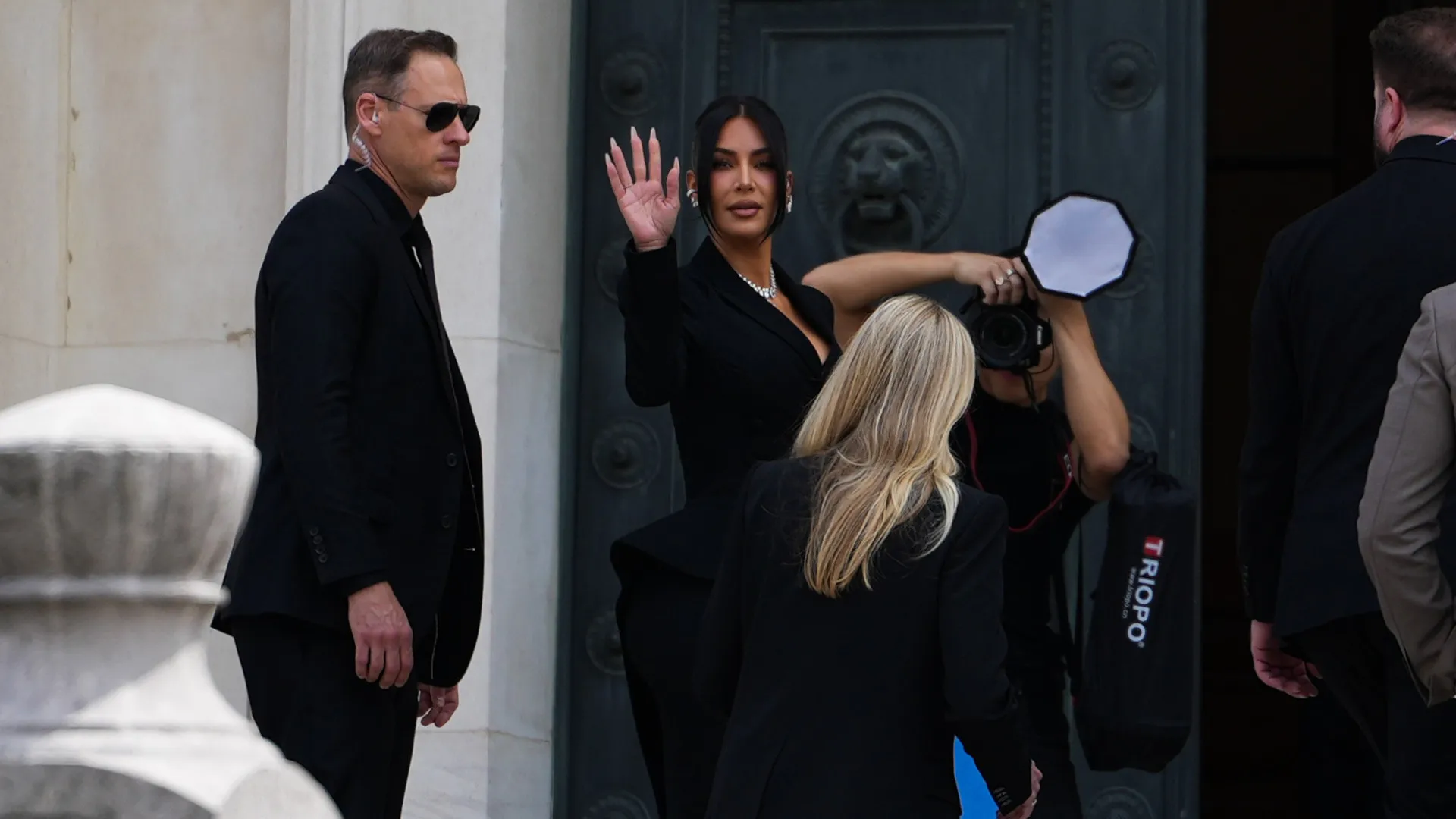
A French court announced, on the morning of May 13, 2025, the conviction of renowned actor Gérard Depardieu to 18 months in prison for sexual assaults against two women during the filming of “Les Volets Verts” in 2021. The decision, which also includes the actor’s registration on the national sex offenders list, marks a significant moment in addressing sexual violence in French cinema.
Depardieu, 76, did not attend the hearing that confirmed the sentence. He was ordered to pay 29,040 euros in compensation to the victims, a 54-year-old set designer and a 34-year-old assistant.
The case, which gained widespread attention, reflects the growing pressure of the #MeToo movement in France, where prominent figures face scrutiny for abusive behavior.
- Sentence: 18 months in prison, not immediately enforced.
- Compensation: 29,040 euros to the victims, approximately $31,000.
- Consequences: Inclusion in the national sex offenders registry.
- Setting: Filming of “Les Volets Verts” in 2021, directed by Jean Becker.
Details of the conviction
The sentence against Gérard Depardieu was issued after a four-day trial in March 2025, during which the court reviewed allegations of sexual assault made by two women working on the set of “Les Volets Verts.” The set designer, aged 54, reported that Depardieu groped her without consent during a break in filming. The assistant, aged 34, described a similar incident, where the actor touched her inappropriately while discussing technical matters.
The court considered evidence, including testimonies from coworkers and set records, to determine Depardieu’s guilt. The presiding judge emphasized that the acts were intentional and represented a clear violation of the victims’ consent. The 18-month sentence will not be served immediately, but the actor faces legal restrictions and the obligation to compensate the victims.
During the trial, Depardieu denied the sexual nature of the allegations. He admitted to using vulgar language and physical gestures, such as grabbing the hips of one of the women, but claimed his actions lacked sexual intent. The actor’s defense argued that his behavior was part of his extroverted personality, common on film sets. The court, however, rejected these claims, ruling that the actions crossed professional boundaries.
Background of the case
The allegations against Depardieu emerged amid heated debates about harassment and sexual violence in the French film industry. The #MeToo movement, which gained global traction after allegations against figures like Harvey Weinstein, reached France with some delay but has significantly impacted the cultural sector. Depardieu, one of the biggest stars in French cinema, became a focal point of these discussions due to his prominence and the increasing number of allegations against him.
Beyond the 2021 case, the actor faces other accusations of inappropriate behavior, including a formal rape charge filed in 2020 by a young actress. That investigation remains ongoing, with additional testimonies being collected. The multiplicity of cases reinforces the perception that Depardieu, known for roles in films like “Cyrano de Bergerac” and “The Last Metro,” is at the center of a wave of accountability in French cinema.
The May 13 conviction is seen as a milestone, particularly because it involves a high-profile figure. The court’s decision was accompanied by expressions of support for the victims, with activists emphasizing the importance of protecting workers in creative environments.
- #MeToo movement: Sparked denunciations in France since 2017.
- Other accusations: Depardieu faces a rape investigation since 2020.
- Repercussion: Case fuels debates on harassment in French cinema.
- Victims: Set designer and assistant received court-ordered compensation.
Depardieu’s career
Gérard Depardieu, born in 1948 in Châteauroux, is an iconic figure in French cinema, with over 200 productions across five decades. He gained international acclaim for roles in films like “Cyrano de Bergerac” (1990), which earned him an Oscar nomination, and “Jean de Florette” (1986). His versatility led him to work with renowned directors like François Truffaut and Jean Becker, cementing his reputation as one of the greatest actors of his generation.
Despite his success, Depardieu has always been a controversial figure. His provocative public statements and his 2013 decision to renounce French citizenship in protest against taxes drew criticism. In recent years, sexual assault allegations have overshadowed his career, with some producers hesitating to hire him for new projects.
The impact of the conviction on Depardieu’s career remains uncertain. He remains active in cinema, but his inclusion in the sex offenders registry may limit his opportunities, particularly in international productions.
Reactions in the film industry
The conviction of Depardieu elicited varied responses among French film professionals. Some colleagues who worked with the actor in past projects expressed surprise, while others advocated for stricter measures against abuses in the industry. Actress Anouk Grinberg, who co-starred with Depardieu in “Les Volets Verts,” praised the victims’ courage in coming forward, noting that silence on film sets perpetuates inappropriate behavior.
Unions representing film workers, such as CGT-Spectacle, issued statements demanding measures to protect technical crews, who often face rigid hierarchies in productions. The 50/50 association, which promotes gender equality in French cinema, emphasized the need for anti-harassment policies on sets, including the presence of intimacy coordinators for sensitive scenes.
Independent production companies have begun adopting stricter codes of conduct. Depardieu’s conviction is seen as an impetus for other victims to come forward, particularly in an industry historically dominated by influential male figures.
Other cases in French cinema
France has faced a wave of sexual violence allegations in the cultural industry since the #MeToo movement took hold in the country in 2017. Besides Depardieu, other prominent figures have been targeted. Director Luc Besson, known for “The Fifth Element,” faced harassment investigations in 2018, though the charges were dropped for lack of evidence. Actor Alain Delon, another French cinema legend, was accused of abusive behavior by colleagues in the 1970s but never faced formal trial.
In 2024, actress Judith Godrèche emerged as one of the leading voices of the French #MeToo movement, denouncing abuses she suffered as a teenager by influential directors. Her statements inspired the creation of a parliamentary committee to investigate harassment in the cultural sector, with hearings scheduled for the second half of 2025.
These cases reflect a gradual shift in the culture of French cinema, which has historically downplayed harassment allegations. Depardieu’s conviction is considered a step toward accountability, but activists warn that preventive measures are still being implemented slowly.
- Luc Besson: Investigated for harassment in 2018, case dismissed.
- Alain Delon: Accused of abuses, no formal trial.
- Judith Godrèche: Leads denunciations against industry abuses.
- Parliamentary committee: Probes harassment in cultural sector in 2025.
Victims’ testimonies
The two women who accused Depardieu provided detailed testimonies during the trial. The set designer, with over 20 years in the industry, described the incident as humiliating, stating that Depardieu’s behavior made her question her continuation on the set. She reported that the actor groped her while she adjusted set elements, with no context to justify the touch.
The assistant, new to the “Les Volets Verts” team, stated that Depardieu touched her non-consensually during a conversation about logistics. She highlighted that the high-pressure work environment made it difficult to react immediately. Both victims received support from feminist organizations, which assisted them in formalizing their complaints.
The testimonies were corroborated by witnesses, including other crew members, who noticed the women’s discomfort after the incidents. The court’s decision to compensate the victims was seen as validation of their accounts, reinforcing the credibility of their allegations.
Depardieu’s response
Gérard Depardieu chose not to attend the May 13 hearing, leaving his defense to his lawyers. In prior interviews, he dismissed the allegations as exaggerated, claiming his conduct on set was part of his “instinctive” approach as an actor. During the trial, he admitted to using sexualized language but denied any intent to harass.
Depardieu’s lawyers announced plans to appeal the decision, arguing that the sentence overlooks the cultural context of the film set. They also questioned the consistency of the victims’ testimonies, suggesting that the actor’s actions were misinterpreted. The appeal process could extend the case for months, keeping Depardieu out of prison while it unfolds.
The actor’s absence from the hearing drew criticism from feminist groups, who saw it as an attempt to downplay the severity of the allegations. The decision not to enforce the sentence immediately also sparked debates about the application of penalties in sexual violence cases in France.
Measures on film sets
The “Les Volets Verts” case exposed the lack of clear protocols for addressing harassment in film productions. The film’s crew, directed by Jean Becker, lacked an intimacy coordinator, a professional responsible for ensuring respect during sensitive scenes or physical interactions. The absence of this role was cited by the victims as a factor that enabled Depardieu’s behavior.
Following the case, the film’s production company announced the adoption of new guidelines, including mandatory harassment training for actors and crew members. Other French producers followed suit, implementing policies requiring mediators on sets with large teams.
The Confédération Générale du Travail (CGT), representing cultural sector workers, pushed for national regulations to protect technical crews. The organization advocates for an independent body to handle anonymous complaints, a measure already in place in countries like the United States and the United Kingdom.
- Intimacy coordinator: Absent in “Les Volets Verts,” now required in new productions.
- Training: Producers adopt anti-harassment courses for crews.
- Regulation: CGT pushes for independent complaint body.
- International models: U.S. and U.K. inspire changes in France.
International repercussions
Depardieu’s conviction garnered attention in global media, reflecting the worldwide impact of the #MeToo movement. Outlets like The New York Times and The Guardian published detailed reports on the case, highlighting Depardieu’s cultural significance. International media also drew comparisons to other cinema scandals, such as those involving Harvey Weinstein and Kevin Spacey.
Countries with robust film industries, like the United States and the United Kingdom, followed the decision closely. Hollywood producers, where Depardieu worked in films like “Green Card” (1990), expressed concerns about future collaborations with the actor. Film festivals, such as Cannes and Berlin, may face pressure to review Depardieu’s participation in upcoming events.
International organizations, like UN Women, praised the French court’s decision but called for faster implementation of anti-sexual violence laws. The conviction was seen as an example of how judicial systems can address allegations, even in cases involving powerful figures.
Case timeline
The legal process against Gérard Depardieu followed a sequence of events culminating in the May 13 conviction. Below are the key moments:
- 2021: Assaults occur on the set of “Les Volets Verts,” involving two women.
- 2023: Victims file formal complaints, triggering a police investigation.
- March 2025: Four-day trial reviews testimonies and evidence.
- May 13, 2025: Court sentences Depardieu to 18 months in prison and compensation.
Support for the victims
The victims of Depardieu received support from feminist organizations, such as Osez le Féminisme, which followed the case from the initial complaint. These groups provided legal and psychological assistance, helping the women navigate public exposure. The set designer and assistant were praised for their courage, particularly for confronting a cultural icon like Depardieu.
Support groups for film industry workers also mobilized, creating networks to encourage reporting. The association Les Femmes du Cinéma, which promotes gender equality in the sector, launched a campaign to emphasize the importance of safe work environments. The initiative included distributing guides on identifying and reporting harassment on sets.
French civil society, particularly in Paris, organized small protests in support of the victims. Activists carried signs with phrases like “Culture does not justify abuse,” drawing attention to the need for structural changes in the film industry.





